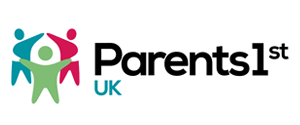A new internship project report to assess existing perinatal peer support practice was published October 2020 by Jessica Moran (Intern at the Scottish Graduate School of Social Science).
The report looks to review the effectiveness of peer support in the perinatal period, different peer support models and their effectiveness (pre-COVID) and potential ways to develop peer support further. Whilst the report focuses mainly on reviewing what peer support is currently available in Scotland, there are relevant, informative, and generic findings that we can all learn from.
From her research, Moran surmises that around 20% of mothers and 10% of fathers experience poor perinatal mental health. Peer support however can offer many benefits in supporting parents through this period, improving mental health and wellbeing. In reviewing the evidence base, Moran concludes:
The evidence supports the effectiveness of peer support in reducing social isolation and improving self-esteem and parenting self-efficacy for new mothers. Many studies also demonstrate a reduction in depressive symptoms for mothers and an increase in social contact outside the home.
(Moran, p6)
Engaging with those who would benefit the most however can present challenges. It is important to understand the barriers that can prevent parents accessing peer support: language, cultural and religious beliefs, geographical reasons (rural isolation, lack of transport etc), disabilities or health problems (stigma, discrimination etc), and socioeconomic disadvantages (i.e., costs involving travel/childcare/internet etc can be prohibitive). However, flexible ways of offering support can provide ways to overcome these barriers and reach different demographics.
For instance, Moran reflects on recent research undertaken by Hann and McLeish in 2019 which suggests socio-economic circumstances affect which type of support women are most likely to access. Women from deprived backgrounds are most likely to engage with one-to-one support in the home, whilst those from more middle-class backgrounds engage more with support groups. (Our experience in Essex during the pandemic has shown that remote group peer support is popular. But face-to-face, one-to-one support is irreplaceable for some women who need to build confidence before feeling able to attend a group, whether remote or face-to-face).
Rather than using just one model of peer support, this research suggests that flexing and adapting a combination of models (one-to-one, group sessions, remote) is important for serving different needs and contexts. Over the past year we perhaps have all become acutely aware of how valuable offering remote support can be to some, and as a result of COVID-19 restrictions, many peer support programmes have quickly developed successful online support systems. However, the value of face-to-face support in the home, particularly for less advantaged communities, cannot be over emphasised.
Moran’s evaluation of remote support therefore is particularly relevant at present. This type of support offers flexibility, accessibility, and autonomy benefits, allowing women to engage in a way that suits them. The Parents 1st Essex team for example, have found that some mums are more willing to engage online as they can turn off their camera and remain anonymous in the first instance. These mums would previously have been unlikely to attend group meetings and may also be experiencing mental health stigma.
Stigma, both self-stigma and feeling stigmatised by others, is a significant barrier to seeking support for women experiencing poor perinatal mental health…Peer support challenges stigma through the example of peer supporters, who model recovery and living well with the challenges of perinatal mental health problems.
(Moran, p29)
Moran evaluates that appropriate, good quality training of peer supporters is key to the effectiveness of peer support – a point that particularly resonates with our experience. Ensuring volunteers feel that they are well prepared is especially helpful in ensuring they can meet the needs of the role. Being a peer supporter can be incredibly rewarding, however caring for others can take its toll and so skilled emotional support and opportunities to reflect are also vital for volunteers who could be triggered by their own experiences or have safeguarding concerns. This has important implications for robust recruitment processes, ensuring there are important ‘seeds’ to build on such as resilience, empathy, ability to listen etc.
The training process and careful matching of peers and clients contributes to the sucess and sustainability of peer support programmes
(Moran, p8)
The risk of inappropriate referrals is referred to (usually due to a lack of other perinatal mental health support) so suitable vetting, supervision and a careful understanding of each parent’s individual needs is vital by those responsible for managing peer support initiatives. The Community Parent Model within our guides section recommends assessing the suitability of referrals by the coordinator and encourages regular, reflective supervision of peer supporters to ensure parents are signposted to appropriate additional services if required and appropriate safeguarding actions are taken as needed. Peer support is not a replacement for professional clinical care.
Moran also raises concern that fathers and partners are less likely to receive peer support – many services are only available to mothers and there may be additional stigmatisation resulting in them being less likely to seek or accept support. Research suggests that “up to 10 % of fathers experience depression during the perinatal period. Paternal depression is associated with lower satisfaction of parenting and poor emotional and behavioural outcomes for children.” This paper identifies a need for peer support for fathers and partners and we wholeheartedly agree with this. Fathers and partners need to feel included, whether living with the pregnant woman or apart.
The unique benefits of peer support to a parent’s wellbeing are clear, however this paper identifies a need to find out more about any economic benefits. Research suggests that peer support reduces the need for further, more intensive support by health professionals. However, the complex issue of analysing savings to the public purse need to be further explored. At present the data gathered is not sufficient to provide definitive evidence. Perhaps therefore this is something that needs to be prioritised within the sector to better inform investment from commissioners and funders?
Read the full report: Peer support in perinatal mental health: evidence review - gov.scot (www.gov.scot)

